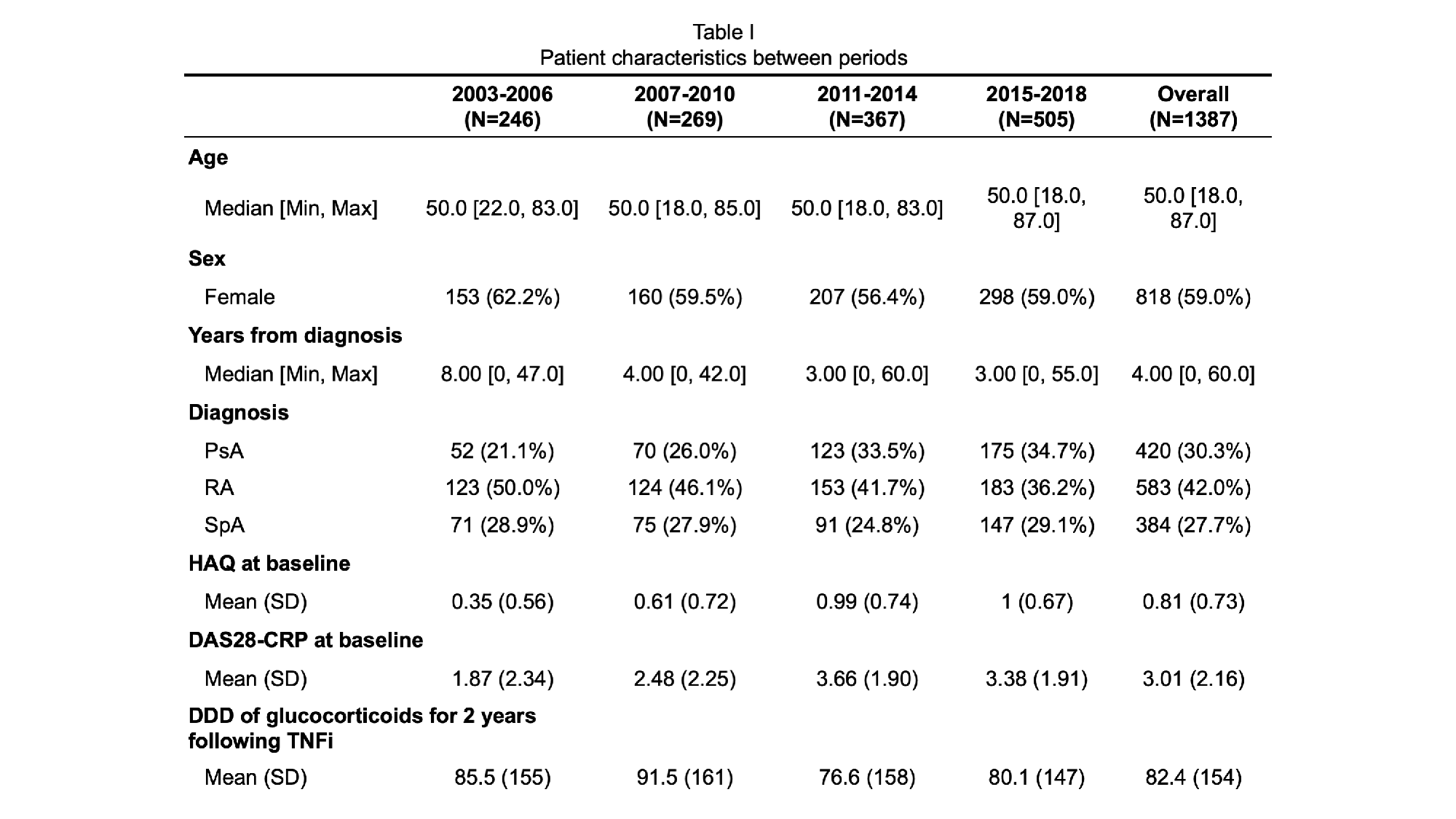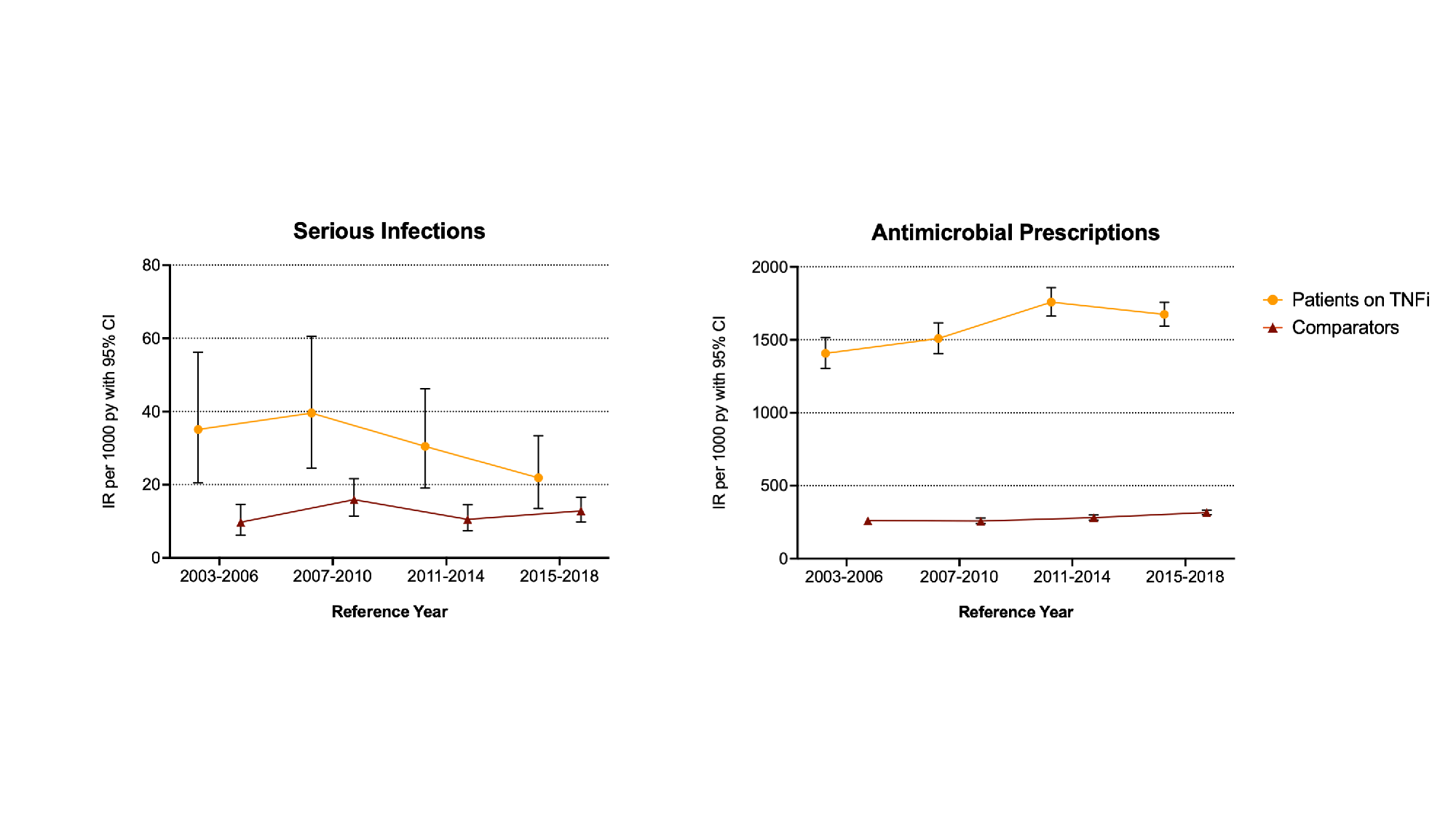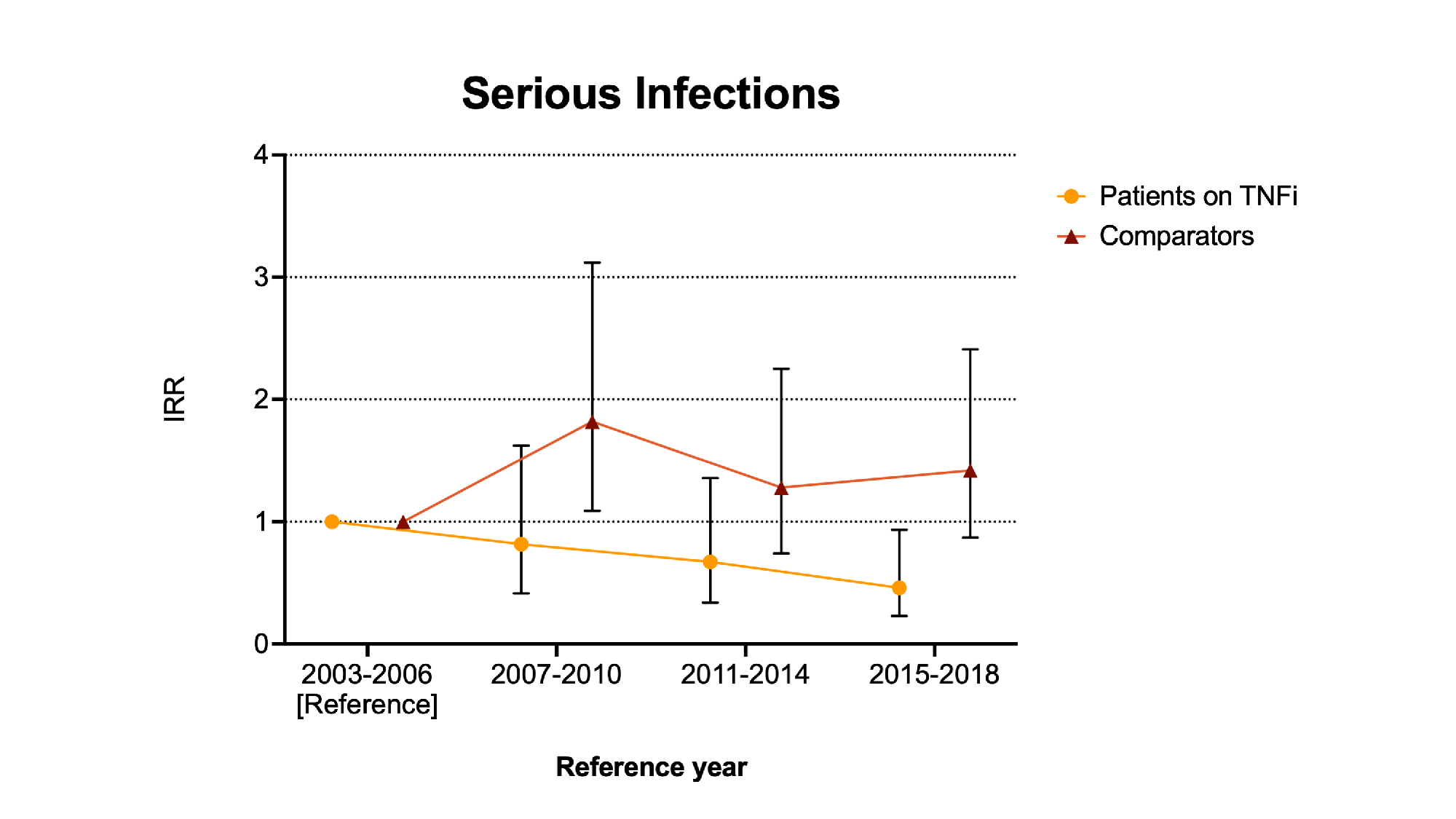Session Information
Session Type: Poster Session B
Session Time: 9:00AM-11:00AM
Background/Purpose: Infections are a known complication of disease-modifying therapy in rheumatic patients but have also been associated with the diseases being treated. Biosimilars have increased access to TNF inhibitors (TNFi) which may have changed the composition of patients receiving TNFi therapy. We hypothesized that, over time, this could lead to a reduction in the incidence of infections and antibiotic use among patients starting TNFi treatment.
Methods: Information on all biologic-naïve adult patients with RA, SpA, and PsA initiating treatment with a TNFi was extracted from ICEBIO, a nationwide registry. Each patient was randomly matched on age, sex, and calendar time to five general population comparators. Patients were observed for two years before and after TNFi initiation (reference date). All ICD-10 inpatient and outpatient codes for infections and information on filled prescriptions were extracted from nationwide registries maintained by the Icelandic Directorate of Health. Serious infections (SI) were defined as any of the following: hospital admission with an ICD-10 code for infection, intravenous antibiotic administration in an outpatient clinic with a relevant ICD-10 code, or a filled prescription for an intravenous antibiotic. Events occurring within 30 days of one another were considered the same event. To examine time trends we split the data into four-year periods; 2003-2006, 2007-2010, 2011-2014, and 2015-2018. We calculated the incidence rate (IR) per 1000 patient-years (py) for SI and prescriptions for each period. We used Poisson exact test to calculate the 95% confidence interval (CI) and p-value when comparing IR. Incidence rate ratios (IRR) were calculated using a Fisher exact test and a Poisson regression model to adjust for previous infections, age, sex, HAQ score at baseline, diagnosis, time from diagnosis, and steroid use.
Results: We identified 1387 individuals initiating their first treatment episode with a TNFi in 2003-2018; 583 (42%) had RA, 420 (30%) PsA, and 384 (28%) SpA. The mean age ±SD was 48.8 years ± 14.2 (Table 1). There were 6916 matched comparators. We identified 139 SI (58 before vs. 81 after TNFi) in the patients and 329 for the comparators (168 before vs. 161 after the reference date).
When comparing the IR per 1000py of the first and last periods, the antimicrobial use increased among the TNFi-treated patients from 1407 (95% CI 1303 – 1517) to 1674 (1593 – 1758) prescriptions (p< 0.001), while the change was not statistically significant for the number of SI; 35.1 (20.5-50.2) to 21.9 (13.5-33.4), p=0.16 (Figure I).
Multivariate analysis showed that the between-period IRR for SI was 0.46 (0.23 – 0.94, p=0.03) for the TNFi treated patients in the last period compared to the first while it was 1.42 (0.87 – 2.41) for the comparators (Figure II). The IRR for antimicrobial use was stable in the TNFi group at 1.02 (0.93-1.13) while it increased for the comparators 1.15 (1.05-1.16, p< 0.001).
Conclusion: The risk of serious infections associated with TNFi in patients with inflammatory arthritides has decreased in recent years. This trend of diminishing risk of SI needs to be considered when analyzing data over long periods or when comparing recent research to previously published data.
To cite this abstract in AMA style:
Bjornsson A, Thrastardottir T, Gudbjornsson B, Love T. Time Trends in Overall Infection Risk in Patients with Inflammatory Arthritides Treated with Tumor Necrosis Factor Inhibitors [abstract]. Arthritis Rheumatol. 2023; 75 (suppl 9). https://acrabstracts.org/abstract/time-trends-in-overall-infection-risk-in-patients-with-inflammatory-arthritides-treated-with-tumor-necrosis-factor-inhibitors/. Accessed .« Back to ACR Convergence 2023
ACR Meeting Abstracts - https://acrabstracts.org/abstract/time-trends-in-overall-infection-risk-in-patients-with-inflammatory-arthritides-treated-with-tumor-necrosis-factor-inhibitors/



